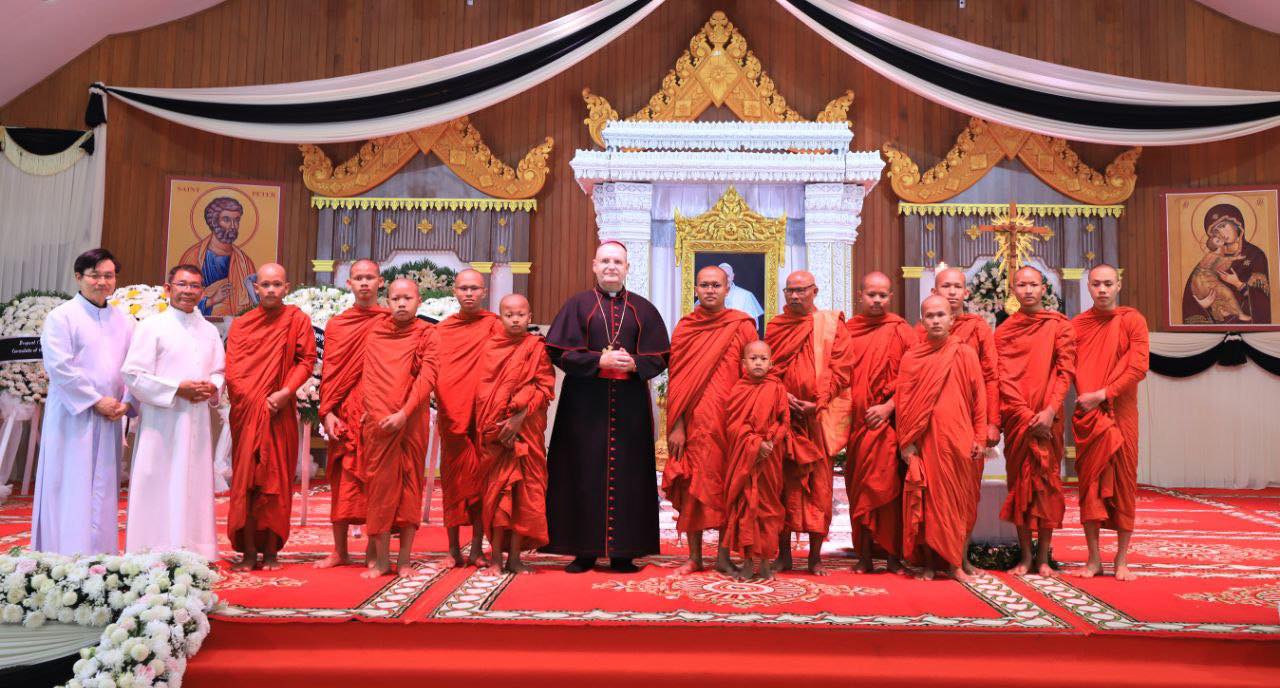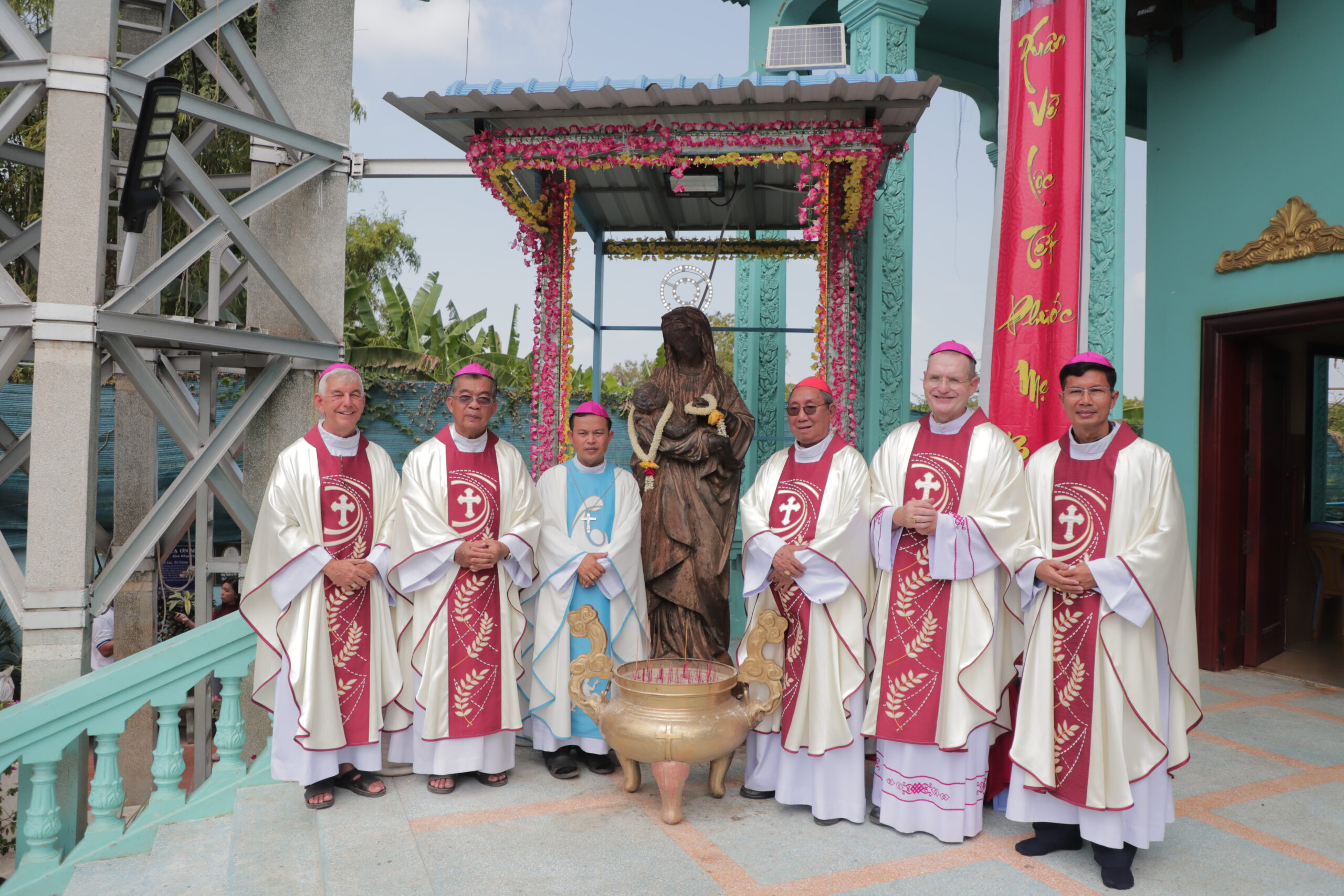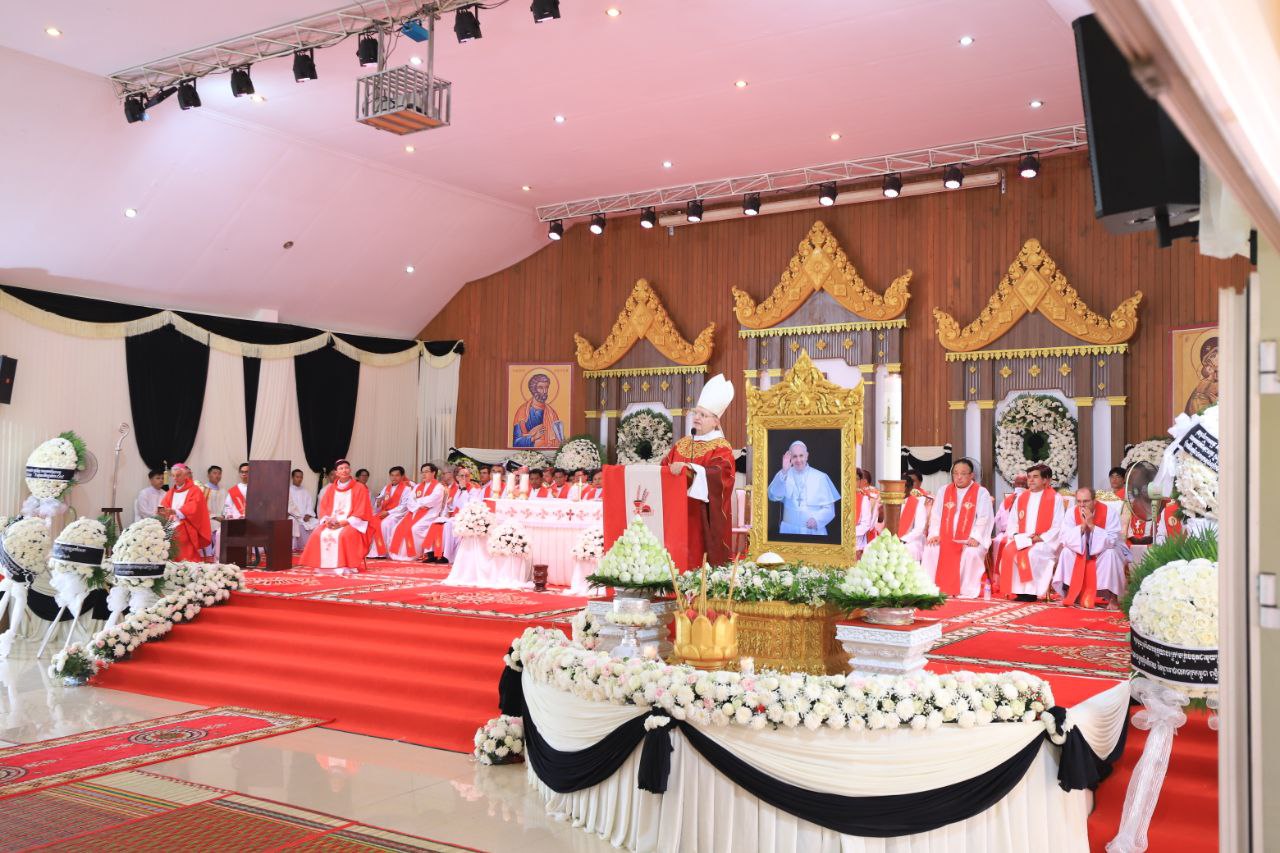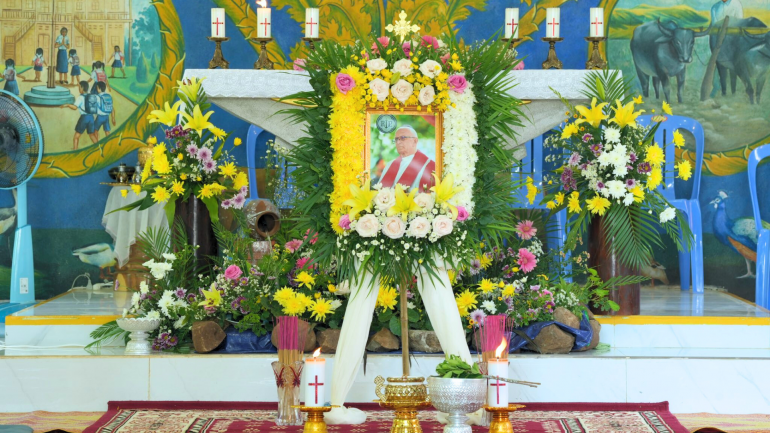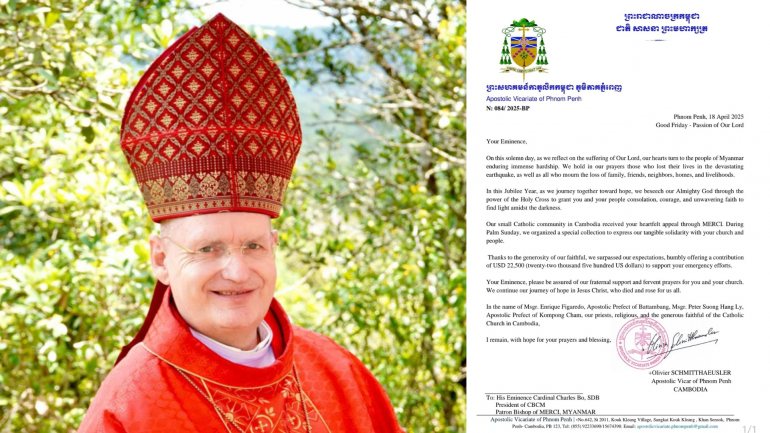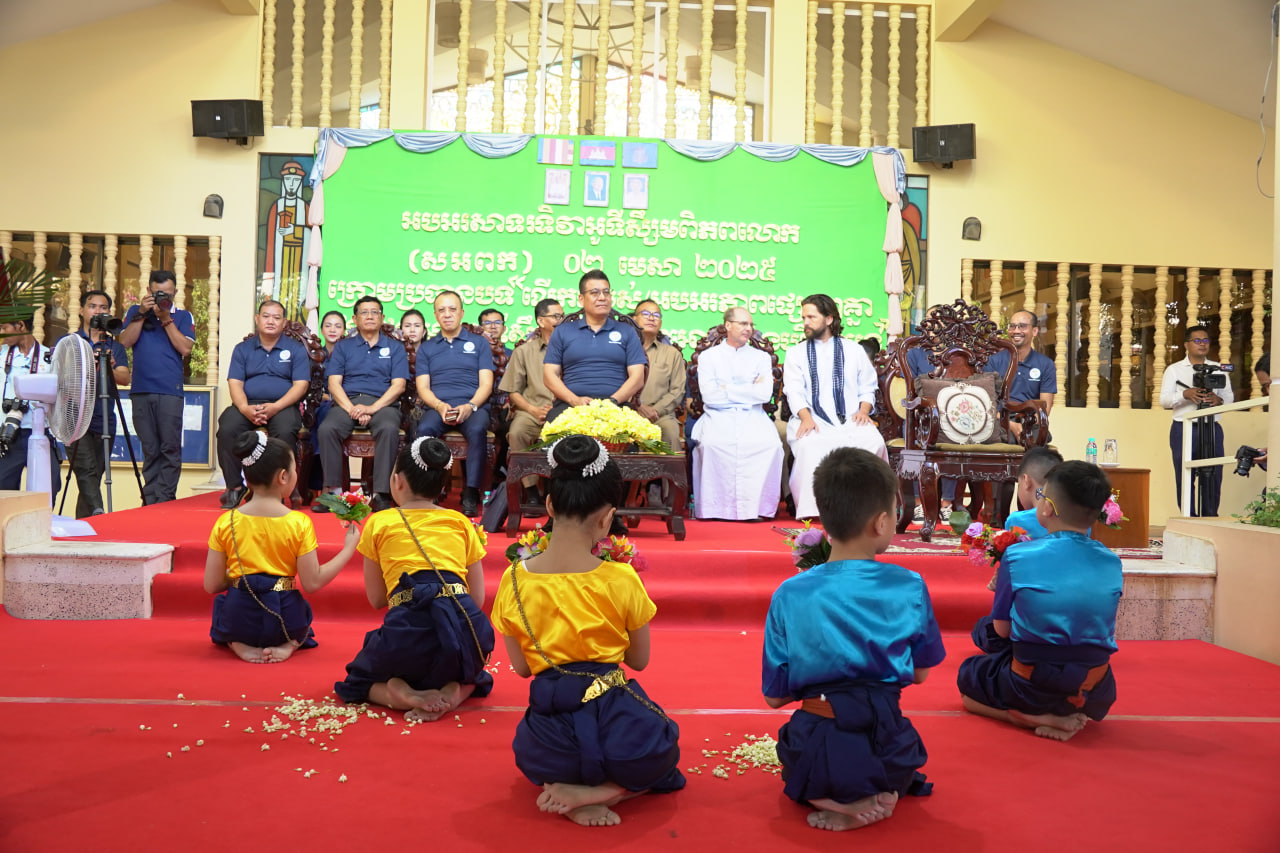Phnom Pen (Agenzia Fides) – “Our extremely small Churches (0.1% of the population in Cambodia, – 0.5% in Laos), live in conditions similar to those of the Acts of the Apostles, with first or second generation Christians (in Cambodia in particular) or in rather oppressive political and social contexts (in Laos in particular) and are a sign of the Kingdom proclaimed by Jesus: the Good News is proclaimed to the poor. Proclaiming the Kingdom is our priority in order to open paths of hope to those whom our societies leave on the side of the road”, write the Bishops of the Episcopal Conference of Laos and Cambodia (CELAC), who gathered in Phnom Penh for their annual assembly and to give their contribution to the Synod on Synodality.
The Churches of Laos and Cambodia make an important reference to the presence and formation of a local clergy, given that there are dozens of local priests in Cambodia and about twenty in Laos: “Families have fewer and fewer children, from 6-7 children once to 1 or 2 sons and daughters now, and it happens that many baptized people marry non-Christian people. How can we cultivate local vocations to the priesthood to serve our communities?”, ask the Pastors, pointing out that their heart and special attention goes to the formation and care of seminarians, a gift that can gradually ensure the future of the local Churches.
A focal point, it is noted, is the participation of the laity: “the work of their formation must be our priority”. In this context, the local Churches are faced with language difficulties, in fact in Cambodia, 90% of the personnel engaged in pastoral service are foreigners, while in Laos, the Laotians engaged in pastoral ministry are a very small number. “We do not have the ability to translate texts into Khmer or Laotian, and our laity do not master foreign languages”, it notes.
The communities of Laos and Cambodia wonder about the fact that the Church is called to build a new world, to be “a prophetic voice”, while “the networks shape our conscience with algorithms and unconsciously guide us all day; theories such as those about gender and the shape of the Metaverse unknowingly shape the lives of the younger generations”.
In this context, a fundamental point that the Bishops identify, in relation to the condition and life of their communities, in fact, is the presence of young people: young people who make up more than 50% of the population in Laos and Cambodia. “These young people grew up in the countryside, but in a few hours they arrive in our capitals”, finding themselves catapulted into a “post-modern and ultra-developed” culture, coming into contact with the world of the Metaverse, of social networks, realities that strongly influence their human, cultural and spiritual development. Virtual reality often attracts and absorbs them more than the real world, the direct interpersonal relationship in the community. Expressing the desire to accompany young people to “develop their potential, on the way to holiness”, “in our very hierarchical Asian societies – the Bishops note – young people are often set aside when they should be important players in the life of the Churches”, it is hoped. And given that young Asians are at the forefront in the use of social networks and new means of social communication, the need is noted for “the proclamation of the Gospel in the new cultures and in the virtual world to be a theme addressed in the Synod”.
Also dwelling on the question of the relationship with the context of Asian spiritual traditions, in particular with the Buddhist one, widespread locally, the Pastors of Laos and Cambodia observe that “spiritual teachings and meditative practices can help us to refocus better on the essential: our union with God made man in Jesus Christ”, therefore to fully live “a personal relationship with God”, the source of any mission experience. (PA) (Agenzia Fides, 17/2/2023)
